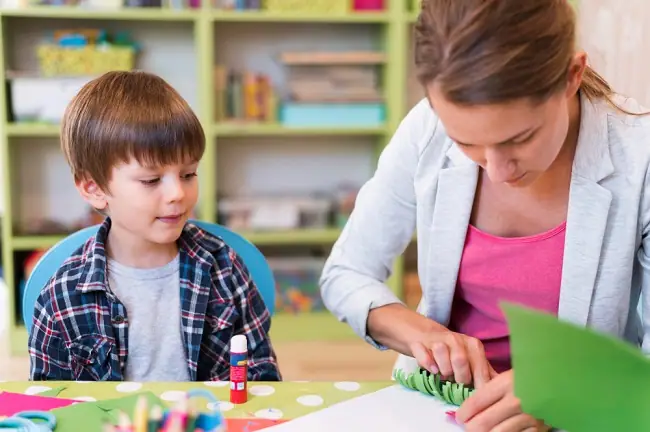Imagine the joy of watching your toddler discover new things every day. Early learning is a crucial aspect of child development, setting the stage for lifelong curiosity and growth. For parents, nurturing these young minds is both a privilege and a responsibility.

In this comprehensive guide, we’ll explore a variety of engaging activities you can do with your toddler at home, backed by scientific research.
Early Learning Activities
Sensory Play
Sensory play is an excellent way to engage your toddler’s senses and stimulate their brain development. Activities like playing with playdough, water tables, or even simple household items like rice or pasta can provide a rich sensory experience. These activities help toddlers explore textures, shapes, and colors while developing their fine motor skills.
Reading is another powerful tool for early learning. It introduces toddlers to new words, concepts, and the joy of storytelling. Make reading a daily ritual; choose books with vibrant pictures and simple text to keep your toddler engaged. Don’t just read the words; use different voices and expressions to make the story come alive.
Imaginative play allows toddlers to explore their creativity and problem-solving skills. Activities like playing house, building with blocks, or even role-playing as different characters can be incredibly beneficial. These activities encourage toddlers to think critically, make decisions, and understand the world around them.
The Science Behind Early Learning
Early learning is backed by extensive psychological and educational research. Studies show that the first five years of life are critical for brain development. During this time, a child’s brain forms connections at a rapid pace, making it a prime period for learning and growth.
According to the American Academy of Pediatrics, engaging in age-appropriate learning activities can significantly impact a child’s cognitive, social, and emotional development. Activities like sensory play, reading, and imaginative play help build neural connections that serve as the foundation for future learning.
Research also emphasizes the importance of responsive parenting. When parents actively engage with their toddlers, provide encouragement, and create a stimulating environment, children are more likely to develop strong cognitive and emotional skills. This underscores the significance of parental involvement in early learning.
Overcoming Common Challenges
Lack of Time
One of the most common challenges parents face is finding time to engage in learning activities with their toddlers. Between work, household chores, and other responsibilities, it can be challenging to carve out time for these activities. One solution is to integrate learning into daily routines. For example, you can turn bath time into a sensory experience or use grocery shopping to teach new words and concepts.
Short Attention Spans
Toddlers often have short attention spans, making it difficult to keep them engaged in learning activities for extended periods. To overcome this, keep activities short and varied. Rotate between different types of activities to maintain their interest. Also, follow your toddler’s lead; if they seem particularly interested in a specific activity, allow them to explore it further.
Limited Resources
Not all parents have access to a wide range of learning materials. However, you don’t need expensive toys or supplies to engage your toddler. Everyday household items can serve as excellent tools for learning. For instance, pots and pans can become musical instruments, and cardboard boxes can turn into imaginative play props.
Technology and Early Learning
Recommended Apps
Technology can be a valuable tool in early learning when used appropriately. There are several educational apps designed specifically for toddlers that offer interactive and engaging content. Apps like Khan Academy Kids, ABCmouse, and Toca Boca provide a range of activities that promote learning in a fun and interactive way.
Screen Time Guidelines
While technology can be beneficial, it’s essential to follow screen time guidelines to ensure a balanced approach. The American Academy of Pediatrics recommends no more than one hour of screen time per day for children aged two to five. Ensure that screen time is high-quality and interactive, and avoid using screens as a substitute for physical and creative play.
Parental Involvement
Parental involvement is crucial when it comes to technology and early learning. Instead of using apps as a babysitter, engage with your toddler during screen time. Discuss what they’re learning, ask questions, and relate app content to real-world experiences. This not only enhances their learning but also strengthens the parent-child bond.
Community Involvement
Library Visits
Local libraries are treasure troves of resources for early learning. Many libraries offer storytime sessions, workshops, and activities designed for toddlers. These events provide an excellent opportunity for your child to interact with peers and develop social skills. Plus, borrowing books from the library ensures a steady supply of new reading material.
Playgroups
Playgroups are another fantastic way to involve the community in your toddler’s learning. These groups offer a structured environment where toddlers can engage in various activities, from arts and crafts to music and dance. Playgroups also provide parents with a support network and a chance to share experiences and tips.
Day Care Centers
Consider enrolling your toddler in a reputable day care in Salt Lake City. Daycare centers offer a structured environment with various learning activities designed to promote cognitive, social, and emotional development. They also provide an opportunity for your child to interact with peers and develop essential social skills.
Conclusion
Now that you understand the importance of early learning and how to overcome common challenges, it’s time to make it a part of your daily routine. Engage in age-appropriate activities, integrate learning into daily routines, and involve the community in your child’s education. With these strategies, you can nurture your toddler’s curiosity and pave the way for a lifetime love of learning.
So go ahead, pick up that book and let your imagination run wild with your little one. Create magical worlds through imaginative play, explore different textures through sensory activities, and watch as their brains grow and develop before your eyes.







